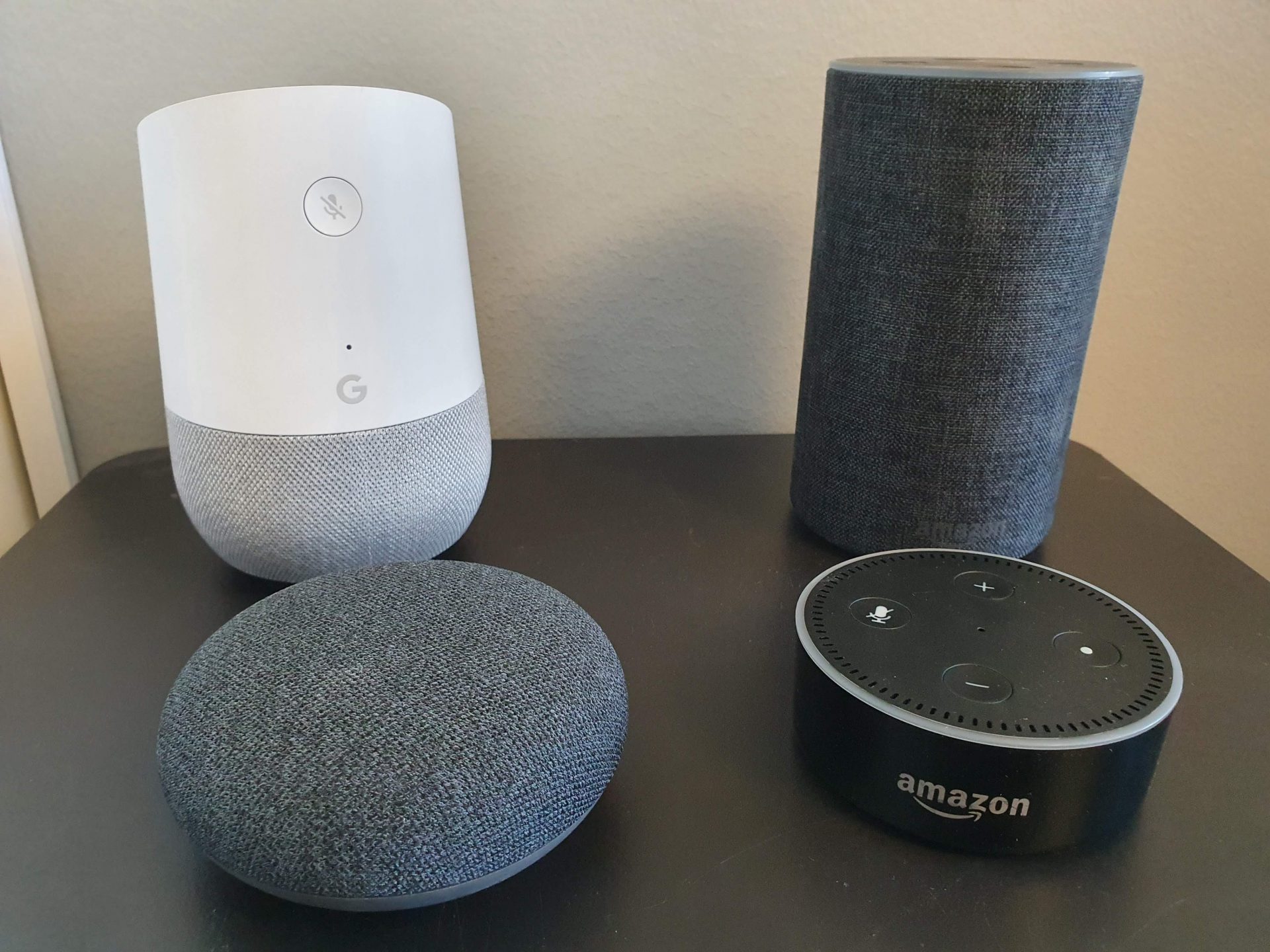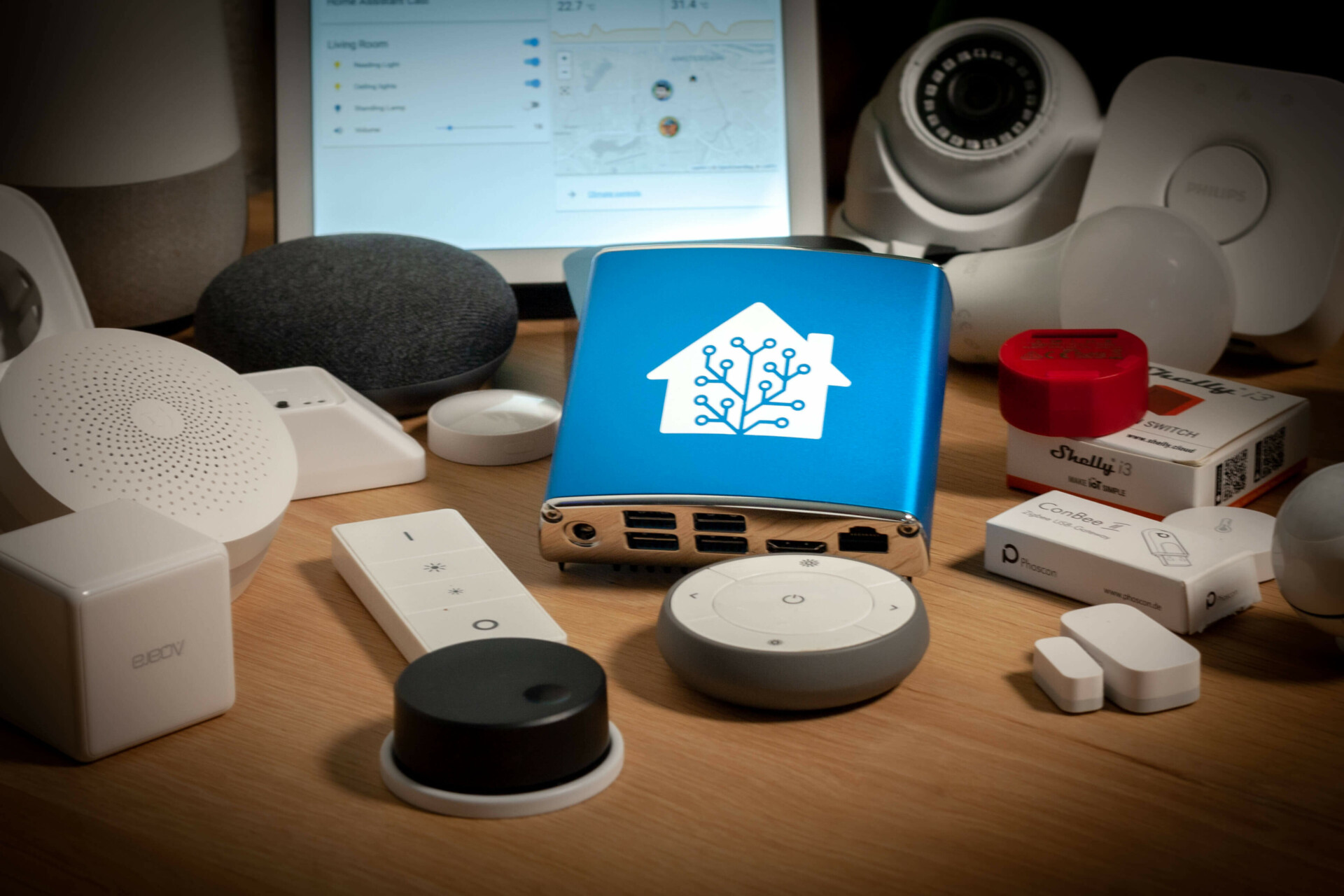Imagine walking into your home and saying ‘I’m back’ to trigger an automated sequence: lights adjusting to your preferred brightness, the temperature set to your comfort level, and your favorite playlist playing softly. This is now a reality.
Smart home digital assistants have advanced from simple voice-controlled gadgets to sophisticated AI-powered companions, transforming how we interact with our living spaces. These systems act as virtual stewards, simplifying daily tasks and redefining our environmental interaction.
Although these AI companions offer convenience through hands-free control of lighting, security, and climate systems, they also bring challenges. Privacy concerns, system reliability, and seamless integration across devices are critical considerations for homeowners.
For tech enthusiasts or anyone seeking efficiency at home, understanding the potential and limitations of digital assistants is crucial. We’ll explore how these AI systems are changing home automation while balancing convenience with control.
The following sections will delve into the capabilities of modern smart home assistants, their impact on daily living, and the challenges of integrating these tools into our private spaces. Discover how these digital companions are shaping the future of home living.
Enhancing Convenience and Efficiency


Digital assistants have changed how we interact with our homes, making tasks as simple as speaking a command. These intelligent helpers can control everything from lights to thermostats with just a few words, eliminating manual adjustments throughout the day.
According to a recent study on home automation, smart assistants benefit individuals with mobility challenges by providing control over their environment. Imagine adjusting the room temperature from bed without walking to the thermostat.
Voice-controlled automation extends beyond basic functions like lighting and temperature. These digital helpers can manage entire routines with a single command – from starting the coffee maker in the morning to securing the house at night.
| Routine | Example Actions |
|---|---|
| Good Morning | Turn on lights, adjust thermostat, start coffee maker, read weather forecast |
| Leaving Home | Lock doors, turn off lights, adjust thermostat, activate security system |
| Commuting to Work | Play podcast, update on traffic, send reminder notifications |
| Commuting Home | Adjust home temperature, turn on lights, play relaxing music |
| I’m Home | Announce arrival, turn on lights, play favorite music |
| Bedtime | Lock doors, turn off lights, lower thermostat, play white noise |
Smart assistants excel at coordinating multiple devices simultaneously. For example, “Good morning” can trigger your assistant to brighten the lights, adjust the thermostat to a comfortable temperature, and start brewing your coffee – all in sync.
The technology adapts to individual preferences and schedules over time. Your digital assistant can learn your daily patterns and automatically adjust settings without prompting, such as dimming lights in the evening or adjusting the temperature before bedtime.
For families managing busy households, these assistants streamline daily tasks that once required multiple steps. Parents can check if doors are locked, turn off children’s room lights, and adjust the thermostat – all while preparing dinner or helping with homework.
Beyond convenience, smart assistants contribute to energy efficiency. They can automatically turn off unused lights, adjust temperature settings when no one is home, and provide detailed reports on energy usage patterns to help optimize consumption.
Smart home technology can simplify daily tasks and routines by automating them. For example, a smart thermostat can be programmed to automatically adjust the temperature based on the time of day or a person’s schedule.
One of the most compelling advantages is the seamless integration between different smart devices. Whether you’re controlling a high-end entertainment system or basic household appliances, everything works together under a single, unified voice command system.
Security and Privacy Considerations
Smart home AI assistants have transformed our interaction with living spaces, but they bring significant security and privacy concerns. These devices use advanced facial recognition and voice analysis to verify users and enhance security.
Recent research by cybersecurity experts indicates that over 70% of IoT devices, including smart home assistants, come with default login credentials, making them vulnerable to unauthorized access. Even more concerning, studies show that most users fail to change these default settings, leaving their devices exposed to potential breaches.
Data collection is a major privacy risk. AI assistants continuously gather and process information about your voice patterns, daily routines, and even facial characteristics when equipped with cameras. This data personalizes the experience but also raises privacy concerns if not properly protected.
The always-listening nature of these devices adds to privacy considerations. While manufacturers claim devices only record when activated by wake words, research has documented instances of inadvertent recordings being transmitted to cloud servers without user knowledge.
To protect your privacy, enable strong data encryption on your devices and regularly review privacy settings. Use unique passwords, enable two-factor authentication when available, and consider creating a separate network specifically for your smart home devices to isolate them from your main network.
Regular software updates are crucial as they often contain important security patches. Additionally, familiarize yourself with what data your assistant collects and how to access or delete your information when needed.
The open nature of the voice channel they use, the complexity of their architecture, the AI features they rely on, and their use of a wide range of underlying technologies expose these systems to various risks.
While these security measures may seem overwhelming, they are essential for protecting your personal information in an increasingly connected home environment. By taking these proactive steps, you can better secure your smart assistant while still enjoying its convenient features.
| Recommendation | Description |
|---|---|
| Change Default Passwords | Set strong and unique passwords instead of factory defaults to prevent unauthorized access. |
| Use Strong Wi-Fi Encryption | Utilize WPA2 or WPA3 encryption protocols to secure your Wi-Fi network. |
| Enable Two-Factor Authentication | Add an extra layer of security by requiring a second form of verification for device access. |
| Regularly Update Firmware | Keep device firmware up to date to patch security vulnerabilities and enhance performance. |
| Disable Unused Features | Turn off features and services you do not use to reduce potential entry points for attackers. |
| Create a Separate Network for IoT Devices | Isolate smart home devices on a separate network to minimize risks to your main network. |
| Monitor Network Traffic | Use network monitoring tools to track device activity and detect unauthorized access attempts. |
Promoting Energy Efficiency
Modern smart homes use artificial intelligence to enhance energy management. Through AI assistants and smart sensors, these systems monitor and optimize energy consumption patterns throughout the home.
Occupancy detection technology is key to these systems. Sensors track room usage in real-time, adjusting temperature, lighting, and appliance settings when spaces are vacant. This approach eliminates energy waste without sacrificing comfort when rooms are occupied.
AI assistants learn and adapt to household routines and preferences over time. For example, the system may notice that you typically work from home on Mondays and adjust the heating schedule accordingly. This personalized optimization ensures efficient energy use while maintaining comfort.
Research shows that AI-powered energy management systems can significantly reduce a home’s energy consumption through enhanced control, automation, and reliability. The technology continuously analyzes usage patterns for greater efficiency.
Beyond tracking occupancy, these systems manage resources holistically. They can schedule energy-intensive tasks like running the dishwasher or charging electric vehicles during off-peak hours when electricity rates are lower. Some systems integrate with smart appliances to optimize their energy usage.
The environmental impact of these intelligent energy management solutions is substantial. By minimizing waste and maximizing efficiency, smart homes help reduce energy demand and carbon emissions. This technology advances sustainable living practices that benefit homeowners and the planet.
Edge AI enables economical, high-performance energy platforms that collect, measure, and process data on energy usage, temperature, illuminance, humidity, and occupancy within a space to improve consumption behavior.
As AI technology advances, these systems will become even more sophisticated in conserving energy while maintaining comfort. The integration of artificial intelligence with home automation represents an exciting frontier in sustainable living and resource management.
Device Integration and Interoperability


A variety of smart home devices displayed neatly. – Via home-assistant.io
Smart home technology has evolved beyond simple gadgets to create seamlessly connected living spaces. Digital assistants act as intelligent conductors orchestrating the complex symphony of smart devices throughout our homes.
Think of digital assistants as universal translators for your smart home devices. Just as a translator helps people speaking different languages communicate effectively, these AI-powered hubs enable devices from various manufacturers to work together harmoniously. Interoperability between different IoT devices remains a critical concern, but digital assistants help bridge these gaps.
Whether you’re using Amazon’s Alexa, Google Assistant, or Apple’s Siri, these platforms create a unified control center for your entire smart home ecosystem. Through simple voice commands or smartphone interfaces, you can adjust your thermostat, dim the lights, lock the doors, and even start your coffee maker – regardless of which companies manufactured these devices.
The real magic happens through standardized communication protocols that digital assistants support. Much like how the internet relies on common languages to function, smart home devices use protocols like IoTivity and Thread to ensure smooth interaction. This standardization allows your smart doorbell to trigger your lights when someone arrives, or your thermostat to coordinate with your window blinds for optimal temperature control.
Beyond basic control, these digital hubs enable sophisticated automation scenarios. Imagine your home automatically adjusting multiple devices based on your daily routines – your morning alarm triggering your coffee maker to start brewing, your lights gradually brightening, and your favorite news briefing playing through your speakers. This level of integration transforms individual smart devices into a cohesive, responsive living environment.
Digital assistants have become the foundation of the modern smart home, enabling unprecedented levels of device integration and automation that were once only possible in science fiction.
Security and privacy safeguards are built into these integrations, with digital assistants acting as gatekeepers to ensure only authorized devices and commands are executed. This centralized approach helps protect your smart home network while maintaining convenient control over all your connected devices.
The Role of SmythOS in Smart Home Development
Smart home technology demands sophisticated AI assistants capable of seamlessly orchestrating multiple devices and systems. SmythOS emerges as a comprehensive development platform that transforms this complex challenge into a manageable endeavor through its intuitive visual builder interface.
The platform’s security framework addresses a critical concern in smart home development by implementing robust encryption protocols and OAuth integration. These features ensure that sensitive home automation data remains protected while enabling secure communication between various smart devices.
A standout feature of SmythOS is its extensive integration capabilities. Through its advanced multi-agent architecture, the platform enables seamless connectivity with various smart home devices and third-party services, eliminating the traditional hurdles of cross-device communication.
The built-in performance monitoring tools provide developers with real-time insights into their smart home systems’ operation. This feature allows for quick identification of bottlenecks and optimization opportunities, ensuring smooth and efficient home automation experiences.
Enterprise teams benefit from SmythOS’s collaborative workspace environment, which includes comprehensive user permissions and white-label options. These features facilitate efficient teamwork while maintaining professional standards in smart home solution development.
The platform’s versatility extends to deployment options, allowing developers to launch smart home solutions either locally or in the cloud. This flexibility ensures that enterprises can choose the most suitable deployment strategy for their specific requirements.
Future Trends and Developments
AI and smart home technology are converging at an intriguing point. Soon, digital assistants will understand nuanced conversations, including tone, context, and emotions, making interactions feel more like conversing with a perceptive friend than a machine.
These advancements are changing how we engage with our living spaces. Digital assistants will detect subtle changes in voice and behavior, responding with emotional intelligence. For example, they might adjust lighting and music based on stress levels after a long workday.
By 2025, over 8 billion voice assistants will be in use globally, fundamentally altering home management and daily routines. These systems will evolve from simple command-response interactions to proactive partners in our lives.
Augmented reality integration is another transformative area. Imagine gesturing at any appliance in your home and instantly viewing its status, energy usage, and maintenance history. This blend of digital information with our physical environment will make technology interaction more intuitive.
The implications extend beyond convenience. AI-driven systems will anticipate needs, automate tasks, and offer unprecedented personalization. Your home might prepare for your return, adjusting everything from temperature to grocery orders based on learned patterns and real-time circumstances.
As these technologies mature, privacy and security will remain critical. The challenge is balancing the benefits of integrated AI assistants with protecting personal data and maintaining user autonomy in our intimate spaces.
